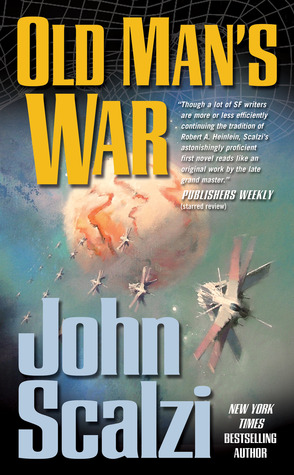
Redshirts by John Scalzi is a science fiction piece riffing on the fate of the infamous Star Trek “redshirts” – those hapless crew members that beam down to the planet with main cast members and always seem to die. The book starts by looking at the situation from the crew member’s perspective, as a group of new recruits begin to realise that their superior officers seem to be miraculously surviving while all around them anonymous crew are slaughtered week after week. The rest of the crew has developed survival techniques to ensure that they are never, under any circumstances, selected for an away mission.
There have been a lot of reviews about Redshirts and I’m not going to be able to add anything particularly insightful in this one. It was… OK. Writing was good (better than anything I could have produced). Story was interesting enough. I liked the three codas at the end. It gets very cleverly “meta”. It was… OK.
If the previous paragraph feels like I’m damning the book with faint praise, it is entirely possible that I am. I didn’t hate it, but I was never really grabbed by it. The writing was good, but not compelling. The premise was clever, but in some ways a bit too clever. It seemed to get in the way of a stronger story.
Coincidentally, I watched another “meta” work over the last couple of days – Joss Whedon’s The Cabin in the Woods. I found it interesting to contrast the two works. With The Cabin in the Woods the story seemed to be more strongly embedded, the meta elements woven in a bit more tightly. The Cabin in the Woods is by no means perfect, but it did feel like the story was being put first. Redshirts felt a bit more like the clever conceit was being put first.
Look, this book is up for many awards, and there are a lot of people that love it. It’s a pretty quick read, and is one of those books that has got a lot of “buzz”. I think it might be one you just have to try for yourself – its “meta” elements are different enough that I’m not sure other people’s opinions are as helpful as normal. If you do read it, I’d love to hear your thoughts in the comments section below. I can’t shake the feeling that I might be missing something.
I also reviewed this book on Goodreads. View all my reviews.
Update 3/9/2013:
Redshirts just won the Hugo, further proof that I’m probably missing something!

This work by Mark Webb is licensed under a Creative Commons Attribution-ShareAlike 3.0 Australia License.

